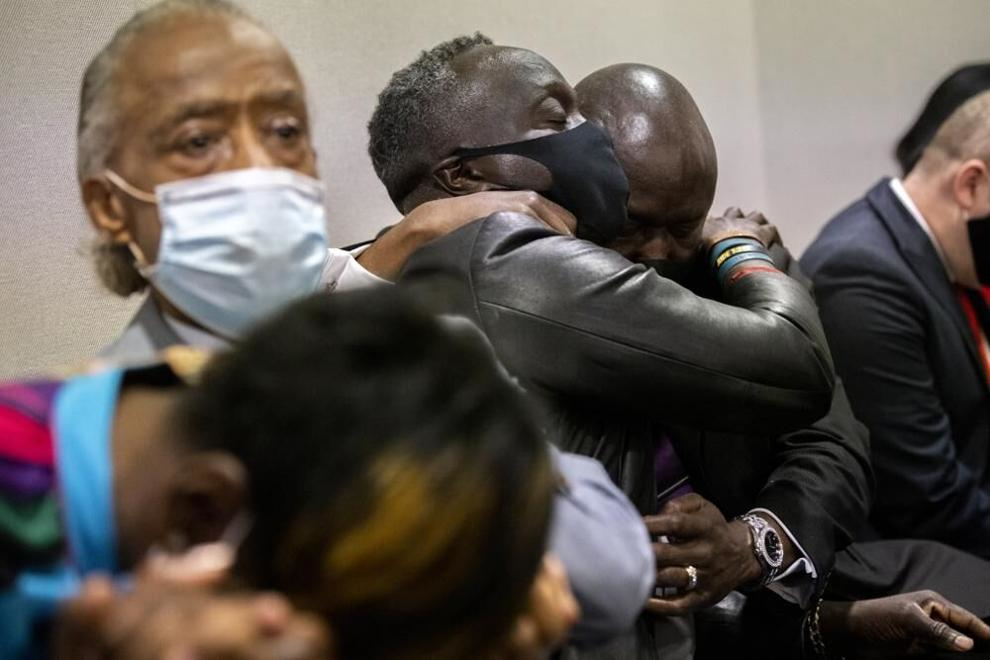
Caption
Ahmaud Arbery's father Marcus Arbery, center, his hugged by his attorney Benjamin Crump after the jury convicted Travis McMichael in the Glynn County Courthouse, Wednesday, Nov. 24, 2021, in Brunswick, Ga. Greg McMichael and his son, Travis McMichael, and a neighbor, William "Roddie" Bryan, charged in the death of Ahmaud Arbery were convicted of murder Wednesday in the fatal shooting that became part of a larger national reckoning on racial injustice.
Credit: Stephen B. Morton, AP





